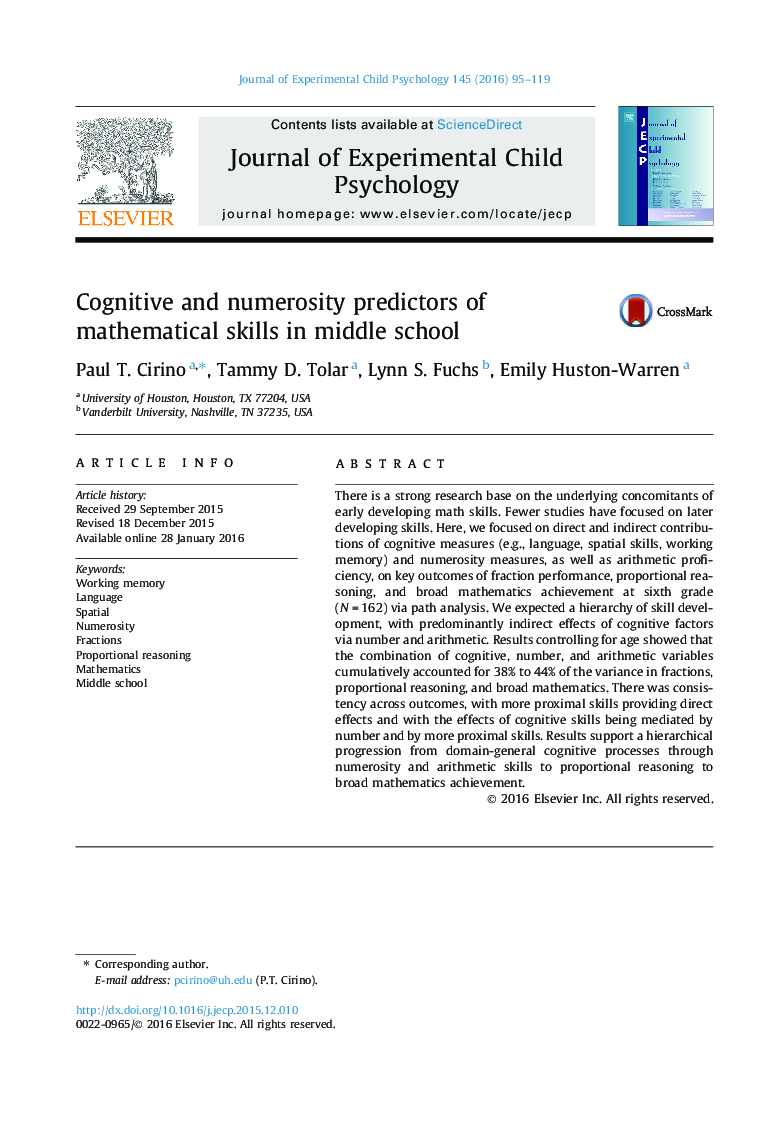| کد مقاله | کد نشریه | سال انتشار | مقاله انگلیسی | نسخه تمام متن |
|---|---|---|---|---|
| 917913 | 1473467 | 2016 | 25 صفحه PDF | دانلود رایگان |
• Domain general and domain specific processes may differentially effect math skills.
• Direct and indirect effects of cognitive, number, & arithmetic measures were tested.
• Cognitive and number predictors operated indirectly for fractions and proportions.
• Broad mathematics had both direct and indirect contributions of those predictors.
• Results support a hierarchy of mathematical development.
There is a strong research base on the underlying concomitants of early developing math skills. Fewer studies have focused on later developing skills. Here, we focused on direct and indirect contributions of cognitive measures (e.g., language, spatial skills, working memory) and numerosity measures, as well as arithmetic proficiency, on key outcomes of fraction performance, proportional reasoning, and broad mathematics achievement at sixth grade (N = 162) via path analysis. We expected a hierarchy of skill development, with predominantly indirect effects of cognitive factors via number and arithmetic. Results controlling for age showed that the combination of cognitive, number, and arithmetic variables cumulatively accounted for 38% to 44% of the variance in fractions, proportional reasoning, and broad mathematics. There was consistency across outcomes, with more proximal skills providing direct effects and with the effects of cognitive skills being mediated by number and by more proximal skills. Results support a hierarchical progression from domain-general cognitive processes through numerosity and arithmetic skills to proportional reasoning to broad mathematics achievement.
Journal: Journal of Experimental Child Psychology - Volume 145, May 2016, Pages 95–119
